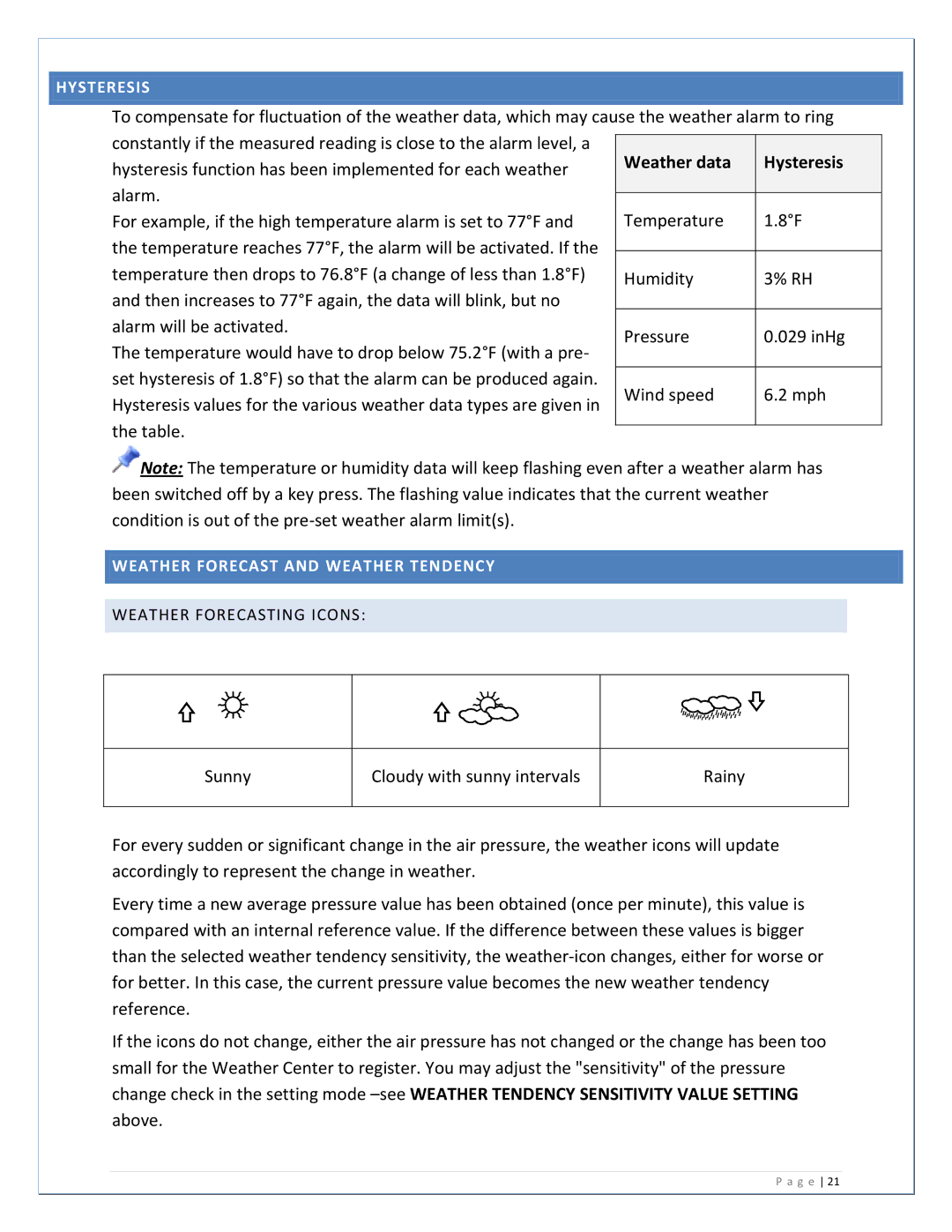
HYSTERESIS
To compensate for fluctuation of the weather data, which may cause the weather alarm to ring
constantly if the measured reading is close to the alarm level, a hysteresis function has been implemented for each weather alarm.
For example, if the high temperature alarm is set to 77°F and the temperature reaches 77°F, the alarm will be activated. If the temperature then drops to 76.8°F (a change of less than 1.8°F) and then increases to 77°F again, the data will blink, but no alarm will be activated.
The temperature would have to drop below 75.2°F (with a pre- set hysteresis of 1.8°F) so that the alarm can be produced again. Hysteresis values for the various weather data types are given in the table.
Weather data | Hysteresis |
|
|
Temperature | 1.8°F |
|
|
Humidity | 3% RH |
|
|
Pressure | 0.029 inHg |
|
|
Wind speed | 6.2 mph |
|
|
![]() Note: The temperature or humidity data will keep flashing even after a weather alarm has been switched off by a key press. The flashing value indicates that the current weather condition is out of the
Note: The temperature or humidity data will keep flashing even after a weather alarm has been switched off by a key press. The flashing value indicates that the current weather condition is out of the
WEATHER FORECAST AND WEATHER TENDENCY
WEATHER FORECASTING ICONS:
Sunny | Cloudy with sunny intervals | Rainy |
For every sudden or significant change in the air pressure, the weather icons will update accordingly to represent the change in weather.
Every time a new average pressure value has been obtained (once per minute), this value is compared with an internal reference value. If the difference between these values is bigger than the selected weather tendency sensitivity, the
If the icons do not change, either the air pressure has not changed or the change has been too small for the Weather Center to register. You may adjust the "sensitivity" of the pressure change check in the setting mode
